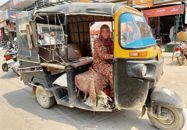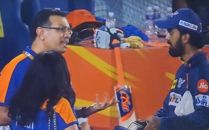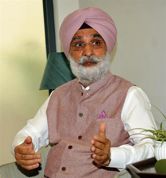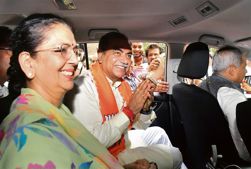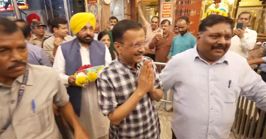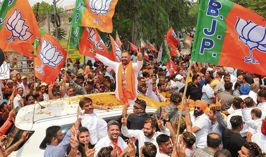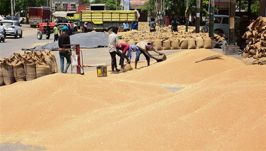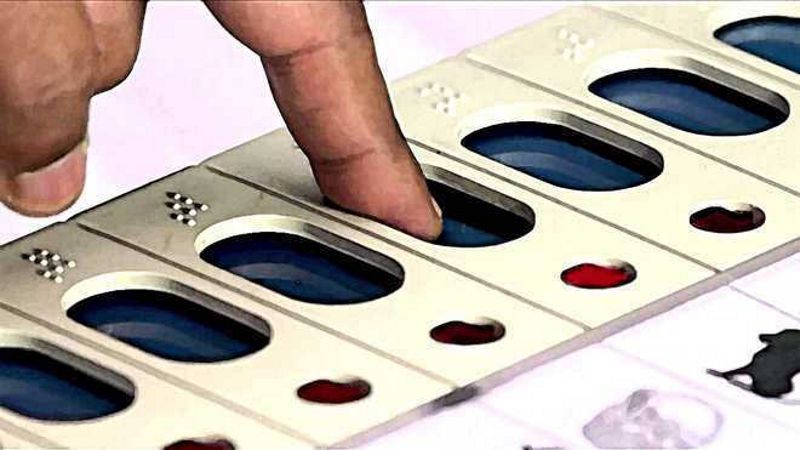
Photo for representational purpose only. - File photo
As I write this column, I am surrounded by the din and cacophony of insults and counter-insults being traded by our political leaders in language that burns my ears. Whatever happened to us that we have become so coarse and combative? We, who prided ourselves for our syncretic roots, our civil exchange of views and fair reportage? When I was growing up, there was an unwritten code that no one would name religious groups when reporting riots and clashes. For as long as I can remember, there have been bitter political rivalries that often burst into communal clashes. In Lucknow, every Ramzan ended with bloody clashes between Shias and Sunnis in the old areas of the city. Similarly, states such as Gujarat, Bihar, the northeast had a bloody history of communal clashes between rival religious communities. However, when such events were reported, the two warring factions were never named. Riots were referred to as clashes between members of one community and another. Of course, we all knew which the two communities were but no newspaper ever named them openly as Hindus and Muslims.
This propriety in our public conversations was tossed out a few years ago as the media became more and more biased. Today, even the topmost leaders of our major political parties, ministers and heads of government have no hesitation in taking names. If the very fountainhead of a country is poisoned, it is only natural that the polity, too, will follow suit. I have never been more reluctant to vote and yet, this is the only chance for me and others like me to register their choice. However, I hang my head in shame at what we have brought our national elections to.
Even as I say this, I cannot absolve my own generation for the indifference with which we treated politics. Just look at the early decades of our Independence. Our parliamentarians were men and women who had distinguished themselves in law, public service and nation-building. They were highly educated people who tried to bring the best practices and ideals that they could into the debates that took place. Even though television did not exist then and we could neither see, nor hear those debates, the reports that were published in national newspapers were eagerly lapped up by the janta.
Mind you, it wasn’t all highfalutin stuff either. Witty people like Piloo Mody kept everyone amused with good-natured asides too. Then, there were the firebrand MPs who hurled uncomfortable questions at the ruling party and they were not expelled for that. The Prime Minister always attended Parliament and listened to everyone before answering his critics in equally sharp terms. Politicians left their mother parties to re-group, but were they ever accused of crossing the floor or doing so for money? I cannot recall any such aberration. Why is it then that politics began to be regarded as a dirty business and none of us were inspired to join it? Eventually, it became a transactional business and the misuse of political representation was distorted to bring in those goons whose local clout among the underworld brought them power in their parties.
By the end of the 1970s, a large part of the country’s elite had decided that politics was a dirty game best left to the loudmouths and hustlers that gradually took over. Some good people tried their best to cling to some vestige of constitutional propriety, but they were soon outnumbered. Today, there is no political party that can survive without the dadas that control money and muscle power. So, whether one votes for one party or another, the voter is always the one who feels cheated. We may have mastered the art of holding efficient elections and our Election Commission may be the world champion in organising elections on such a gigantic scale, but the spirit of the process is slowly being lost. What will happen as the country drifts towards one-party dominance is a worry that my generation will take to their grave.
However, we must acknowledge the nobility of our simple villagers and rural folk who have tried to keep democracy alive. The most enthusiastic participants in every election, they come out in full strength to cast their vote. This is more than one can say of our spoilt rich classes, who can’t bear to stand in queues in punishing heat, or stand next to the local cobbler who is an equal citizen. They take the holiday to drive to the hills or have pool parties. Their children have already seceded from the republic as they study abroad and are unlikely to ever return. They themselves have the means to live in gated communities, with captive water and electricity, personal guards and never use public transport or public hospitals. What does it matter, they reckon, if one party wins or loses? Their money is safely parked abroad and their businesses know how to work the system.
This, dear reader, is where our glorious republic is at present. To the younger readers, my earnest plea is to take part in the process and go and cast your vote. Do not make the mistake that our generation did and let the goons take over. We failed you, you should not fail your children.
Join Whatsapp Channel of The Tribune for latest updates.







